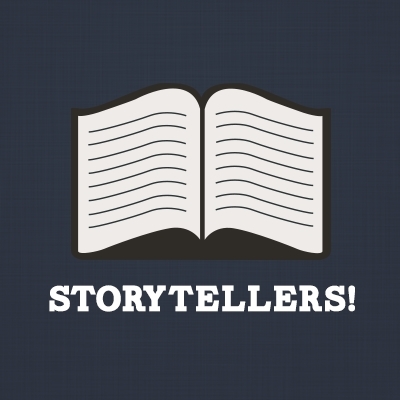Storytelling is a Powerful Technique!
Some of the most engaging and persuasive TV commercials tell a story. For example, Chipotle’s national television ad, “Back to the Start,” told such a captivating story that it won the Cannes Film Lions Grand Prix. The animated short film style commercial tells the story of a farmer and how he turns his humane family farm into an industrial animal factory, but then sees his mistake and chooses to return to sustainable farming. Through the story, Chipotle shows they are committed to cultivate a better word and a sustainable future, just like the farmer.So why are stories like Chipotle’s “Back to the Start” ad so successful?
Here are 4 reasons that stories will win over your e-Learners
- You can emotionally connect with your learners.
People seek human connection, and stories are one of the best ways to achieve this emotional connection with your learners. Everyone wants someone who he or she can relate to. When people are connected, they feel less alone and more understood, which is a powerful thing. Don’t pass up an opportunity to relate to your learners through a story. Characters are one way to use a story to connect with your learners. Here’s a good blog post that can help: Using Characters in Your Online Training. - Stories are crucial to the learning process.
According to Malcolm Knowles, John Keller and other learning theorists, adult learners must first see the relevance of something before they’ll feel persuaded to learn about it. If you explain e-Learning concepts in the context of a story, you will help learners integrate knowledge into their mental models in meaningful ways. That’s because the realistic context of a story makes information easier to remember. Think about it: a list of random facts is usually much more difficult to remember than the concept of a story you hear. - Our brains become more active when we hear stories.
We are engaged when we hear a story because it activates more than just the language processing parts in our brain activity, according to researchers in Spain. Stories activate any part of the brain that we would use when experiencing the events of the stories ourselves. For example, if someone tells us about how delicious certain foods were, our sensory cortex lights up, if it’s about motion, our motor cortex gets active. Stories get your whole brain working—and that’s ideal for e-Learning. For more brain-focused tips, read this blog post: 5 Strategies for Designing Brain-Friendly e-Learning Courses. - Stories are entertaining.
You may be thinking, “Wait, I thought the purpose of e-Learning was to educate!” That’s still true. But if you also entertain learners with your story, that’s an added bonus. People enjoy stories because it’s human nature. Try creating an e-Learning course that’s enjoyable instead of another one of those dull and dreaded courses that employees grumble about; add story to it! For helpful tips on creating fun, engaging online training courses, read this blog post: How to Make Online Compliance Training More FUN.
Get ready to win over your e-Learners with stories, just like Chipotle won over burrito eaters. If you want to learn more about storytelling—like how to put your learner into a story—check out this post on using scenarios: Building Scenario-Based e-Learning Courses. And if you want to improve your narrative flow, this post is a helpful one to read: Techniques for Developing Your e-Learning Narrative Flow.Quickly add stories to your e-Learning with the easy-to-use authoring tool, Lectora Inspire. Start your free 30-day trial today!

